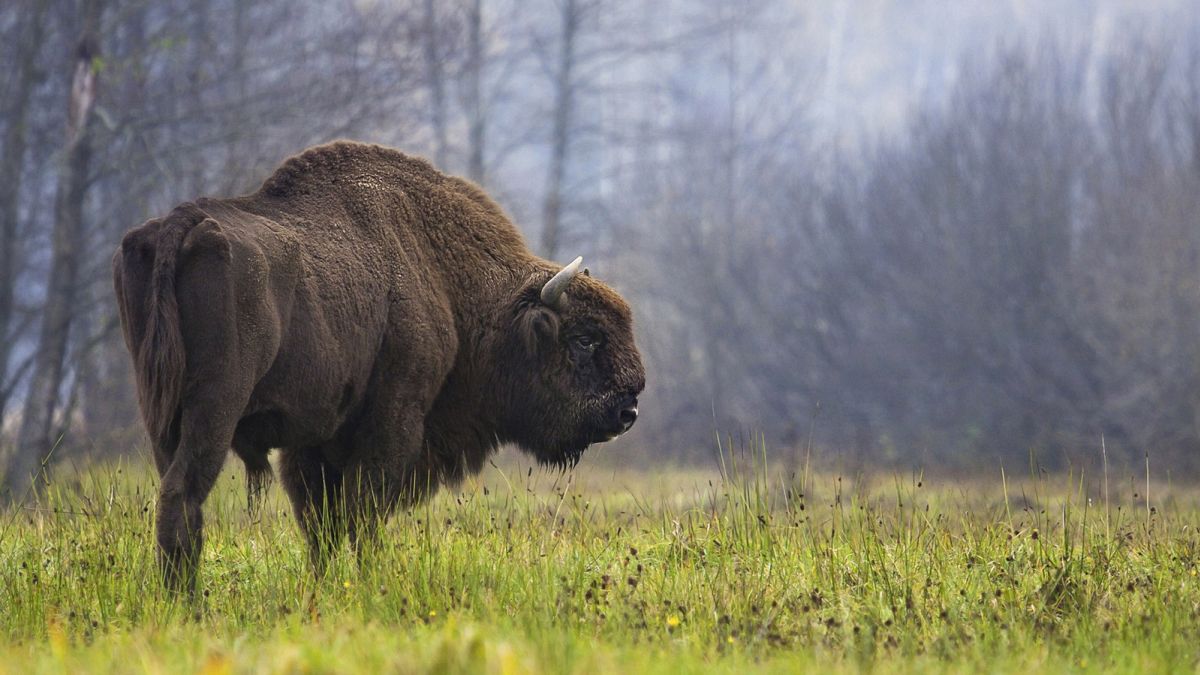The European Parliament gave on Tuesday the green-light to the Nature Restoration Law, defying a conservative push to bring down the bill.
The law received 329 votes in favour, 275 against and 24 abstentions, a margin larger than initially expected. The outcome prompted applause and cheers from socialists and green MEPs as their right-wing colleagues stood quiet.
The vote was closely watched as it took place amid farmer protests, who have made the European Green Deal one of its main objects of criticism.
Still, the law approved on Tuesday had been heavily watered down during negotiations and lacks the ambition of the original proposal. The text will now go to the Council, where member states will hold the final vote.
The Nature Restoration Law aims at rehabilitating at least 20% of the European Union's land and sea areas by 2030 and all degraded ecosystems by 2050. It establishes obligations and targets on different fields of action, such as farmlands, pollinators, rivers, forests and urban areas, to gradually reverse the environmental damage caused by climate change and unchecked human activity.
First presented by the European Commission in June 2022, it gained further significance after the landmark biodiversity agreement sealed at COP15.
But last year, the law became the target of a fierce opposition campaign by conservatives, particularly by the European People's Party (EPP), the Parliament's largest formation. The EPP repeatedly claimed the bill would threaten the livelihoods of European farmers, disrupt long-established supply chains, decrease food production, push prices up for consumers and even wipe out urban areas to make way for green spaces.
The arguments were strongly contested by left-wing groups, the European Commission, dozens of NGOs, thousands of climate scientists, the renewable industry and big businesses like IKEA, H&M, Iberdrola, Unilever, Nestlé and Danone, all of whom insisted the goal of restoring nature was compatible with economic activity and essential to ensure the long-term viability of European soils.
The EPP-led push to derail the Parliament's common position failed in July after a handful of conservatives rebelled and broke ranks to vote in favour of the draft law. This allowed MEPs to enter negotiations with the Council and reach a provisional agreement in November, which was expected to be rubber-stamped by both institutions.
However, the eruption in January of Europe-wide farmer protests reinvigorated the backlash against the Green Deal, as the agriculture sector directly blamed the bloc's environmental regulations as a reason for excessive bureaucratic burden.
The Nature Restoration Law, which had largely faded into the background, was once again thrust to the centre of the political storm. In the lead-up to the June elections, the EPP has positioned itself as the pro-farmers party.
"We still believe the Nature Restoration Law is badly drafted and was never up to the task in front of us," Manfred Weber, the EPP's chairman, said on Tuesday ahead of the vote.
"Inflation is today driven by the rise of food prices in supermarkets. We have to ask our farmers to produce more and not less to stabilise inflation."
Pedro Marques, from the Socialists and Democrats (S&D), struck back against the conservatives' claims and accused them of spreading "disinformation."
"This idea they're voting [against the law] because they care for the farmers. This is absolutely unacceptable. This is just populistic. This is misleading the Europeans and certainly our farmers," Marques said. "Denying the Green Deal, denying the climate emergency is certainly not the way to solve our problems."
Terry Reintke, co-president of the Greens, hailed Tuesday's vote as a "success" for biodiversity preservation, climate protection, farmers and food safety in the EU.
"It is a victory for the many environmental organisations and businesses that have been fighting for the Nature Restoration Law for months," Reintke told Euronews.
The German lawmaker noted the importance of making "the Green Deal future-proof for the next legislative period" and expressed hope that "Weber and his EPP group" would show that they stand behind the Green Deal "instead of looking to the far-right."
Manon Aubry, from The Left, said the positive outcome was a "huge relief" despite the "weakened" text. "The passage of the Nature Restoration Law is proof that the right/far-right alliance to defeat all green legislation is not strong enough against all those who defend the biodiversity and the planet," Aubry said in a statement.
Environmental NGOs, who had stepped up their outreach activities to counter the EPP's talking points, also welcomed the news.
"We are relieved that MEPs listened to facts and science, and did not give in to populism and fear-mongering," WWF, BirdLife Europe, the European Environment Bureau (EEB) and ClientEarth said in a joint statement. "Now, we urge member states to follow suit and deliver this much-needed law to bring back nature in Europe."
By contrast, the European Conservatives and Reformists (ECR) group, who had tabled a motion to dismiss the bill in its entirety, spoke of a "very unfortunate decision" that would entail "drastic consequences for rural areas and high economic risks and administrative burden for agriculture."
The survival of the law represents a brief respite for the Green Deal, which is under growing pressure from right-wing and liberal parties, the agriculture sector and industry associations. Earlier this month, the European Commission decided to withdraw a contentious bill designed to reduce by half the use and risks of pesticides by 2030.
This piece has been updated with more information about the vote.
